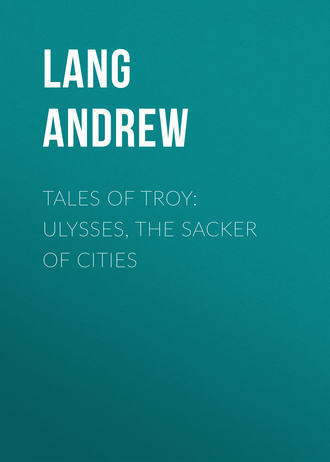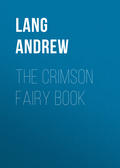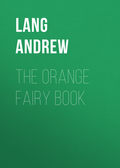
Lang Andrew
Tales of Troy: Ulysses, the Sacker of Cities
Then Priam praised his wisdom, and all men betook them to bed, but the bright Dawn rose unwillingly next day, to throw light on the battle where her son was to risk his fife. Then Memnon led out the dark clouds of his men into the plain, and the Greeks foreboded evil when they saw so great a new army of fresh and unwearied warriors, but Achilles, leading them in his shining armour, gave them courage. Memnon fell upon the left wing of the Greeks, and on the men of Nestor, and first he slew Ereuthus, and then attacked Nestor’s young son, Antilochus, who, now that Patroclus had fallen, was the dearest friend of Achilles. On him Memnon leaped, like a lion on a kid, but Antilochus lifted a huge stone from the plain, a pillar that had been set on the tomb of some great warrior long ago, and the stone smote full on the helmet of Memnon, who reeled beneath the stroke. But Memnon seized his heavy spear, and drove it through shield and corselet of Antilochus, even into his heart, and he fell and died beneath his father’s eyes. Then Nestor in great sorrow and anger strode across the body of Antilochus and called to his other son, Thrasymedes, “Come and drive afar this man that has slain thy brother, for if fear be in thy heart thou art no son of mine, nor of the race of Periclymenus, who stood up in battle even against the strong man Heracles!”
But Memnon was too strong for Thrasymedes, and drove him off, while old Nestor himself charged sword in hand, though Memnon bade him begone, for he was not minded to strike so aged a man, and Nestor drew back, for he was weak with age. Then Memnon and his army charged the Greeks, slaying and stripping the dead. But Nestor had mounted his chariot and driven to Achilles, weeping, and imploring him to come swiftly and save the body of Antilochus, and he sped to meet Memnon, who lifted a great stone, the landmark of a field, and drove it against the shield of the son of Peleus. But Achilles was not shaken by the blow; he ran forward, and wounded Memnon over the rim of his shield. Yet wounded as he was Memnon fought on and struck his spear through the arm of Achilles, for the Greeks fought with no sleeves of bronze to protect their arms.
Then Achilles drew his great sword, and flew on Memnon, and with sword-strokes they lashed at each other on shield and helmet, and the long horsehair crests of the helmets were shorn off, and flew down the wind, and their shields rang terribly beneath the sword strokes. They thrust at each others’ throats between shield and visor of the helmet, they smote at knee, and thrust at breast, and the armour rang about their bodies, and the dust from beneath their feet rose up in a cloud around them, like mist round the falls of a great river in flood. So they fought, neither of them yielding a step, till Achilles made so rapid a thrust that Memnon could not parry it, and the bronze sword passed clean through his body beneath the breast-bone, and he fell, and his armour clashed as he fell.
Then Achilles, wounded as he was and weak from loss of blood, did not stay to strip the golden armour of Memnon, but shouted his warcry, and pressed on, for he hoped to enter the gate of Troy with the fleeing Trojans, and all the Greeks followed after him. So they pursued, slaying as they went, and the Scaean gate was choked with the crowd of men, pursuing and pursued. In that hour would the Greeks have entered Troy, and burned the city, and taken the women captive, but Paris stood on the tower above the gate, and in his mind was anger for the death of his brother Hector. He tried the string of his bow, and found it frayed, for all day he had showered his arrows on the Greeks; so he chose a new bowstring, and fitted it, and strung the bow, and chose an arrow from his quiver, and aimed at the ankle of Achilles, where it was bare beneath the greave, or leg-guard of metal, that the God had fashioned for him. Through the ankle flew the arrow, and Achilles wheeled round, weak as he was, and stumbled, and fell, and the armour that the God had wrought was defiled with dust and blood.
Then Achilles rose again, and cried: “What coward has smitten me with a secret arrow from afar? Let him stand forth and meet me with sword and spear!” So speaking he seized the shaft with his strong hands and tore it out of the wound, and much blood gushed, and darkness came over his eyes. Yet he staggered forward, striking blindly, and smote Orythaon, a dear friend of Hector, through the helmet, and others he smote, but now his force failed him, and he leaned on his spear, and cried his warcry, and said, “Cowards of Troy, ye shall not all escape my spear, dying as I am.” But as he spoke he fell, and all his armour rang around him, yet the Trojans stood apart and watched; and as hunters watch a dying lion not daring to go nigh him, so the Trojans stood in fear till Achilles drew his latest breath. Then from the wall the Trojan women raised a great cry of joy over him who had slain the noble Hector: and thus was fulfilled the prophecy of Hector, that Achilles should fall in the Scaean gateway, by the hand of Paris.
Then the best of the Trojans rushed forth from the gate to seize the body of Achilles, and his glorious armour, but the Greeks were as eager to carry the body to the ships that it might have due burial. Round the dead Achilles men fought long and sore, and both sides were mixed, Greeks and Trojans, so that men dared not shoot arrows from the walls of Troy lest they should kill their own friends. Paris, and Aeneas, and Glaucus, who had been the friend of Sarpedon, led the Trojans, and Aias and Ulysses led the Greeks, for we are not told that Agamemnon was fighting in this great battle of the war. Now as angry wild bees flock round a man who is taking their honeycombs, so the Trojans gathered round Aias, striving to stab him, but he set his great shield in front, and smote and slew all that came within reach of his spear. Ulysses, too, struck down many, and though a spear was thrown and pierced his leg near the knee he stood firm, protecting the body of Achilles. At last Ulysses caught the body of Achilles by the hands, and heaved it upon his back, and so limped towards the ships, but Aias and the men of Aias followed, turning round if ever the Trojans ventured to come near, and charging into the midst of them. Thus very slowly they bore the dead Achilles across the plain, through the bodies of the fallen and the blood, till they met Nestor in his chariot and placed Achilles therein, and swiftly Nestor drove to the ships.
There the women, weeping, washed Achilles’ comely body, and laid him on a bier with a great white mantle over him, and all the women lamented and sang dirges, and the first was Briseis, who loved Achilles better than her own country, and her father, and her brothers whom he had slain in war. The Greek princes, too, stood round the body, weeping and cutting off their long locks of yellow hair, a token of grief and an offering to the dead.
Men say that forth from the sea came Thetis of the silver feet, the mother of Achilles, with her ladies, the deathless maidens of the waters. They rose up from their glassy chambers below the sea, moving on, many and beautiful, like the waves on a summer day, and their sweet song echoed along the shores, and fear came upon the Greeks. Then they would have fled, but Nestor cried: “Hold, flee not, young lords of the Achaeans! Lo, she that comes from the sea is his mother, with the deathless maidens of the waters, to look on the face of her dead son.” Then the sea nymphs stood around the dead Achilles and clothed him in the garments of the Gods, fragrant raiment, and all the Nine Muses, one to the other replying with sweet voices, began their lament.
Next the Greeks made a great pile of dry wood, and laid Achilles on it, and set fire to it, till the flames had consumed his body except the white ashes. These they placed in a great golden cup and mingled with them the ashes of Patroclus, and above all they built a tomb like a hill, high on a headland above the sea, that men for all time may see it as they go sailing by, and may remember Achilles. Next they held in his honour foot races and chariot races, and other games, and Thetis gave splendid prizes. Last of all, when the games were ended, Thetis placed before the chiefs the glorious armour that the God had made for her son on the night after the slaying of Patroclus by Hector. “Let these arms be the prize of the best of the Greeks,” she said, “and of him that saved the body of Achilles out of the hands of the Trojans.”
Then stood up on one side Aias and on the other Ulysses, for these two had rescued the body, and neither thought himself a worse warrior than the other. Both were the bravest of the brave, and if Aias was the taller and stronger, and upheld the fight at the ships on the day of the valour of Hector; Ulysses had alone withstood the Trojans, and refused to retreat even when wounded, and his courage and cunning had won for the Greeks the Luck of Troy. Therefore old Nestor arose and said: "This is a luckless day, when the best of the Greeks are rivals for such a prize. He who is not the winner will be heavy at heart, and will not stand firm by us in battle, as of old, and hence will come great loss to the Greeks. Who can be a just judge in this question, for some men will love Aias better, and some will prefer Ulysses, and thus will arise disputes among ourselves. Lo! have we not here among us many Trojan prisoners, waiting till their friends pay their ransom in cattle and gold and bronze and iron? These hate all the Greeks alike, and will favour neither Aias nor Ulysses. Let them be the judges, and decide who is the best of the Greeks, and the man who has done most harm to the Trojans.”
Agamemnon said that Nestor had spoken wisely. The Trojans were then made to sit as judges in the midst of the Assembly, and Aias and Ulysses spoke, and told the stories of their own great deeds, of which we have heard already, but Aias spoke roughly and discourteously, calling Ulysses a coward and a weakling. “Perhaps the Trojans know,” said Ulysses quietly, “whether they think that I deserve what Aias has said about me, that I am a coward; and perhaps Aias may remember that he did not find me so weak when we wrestled for a prize at the funeral of Patroclus.”
Then the Trojans all with one voice said that Ulysses was the best man among the Greeks, and the most feared by them, both for his courage and his skill in stratagems of war. On this, the blood of Aias flew into his face, and he stood silent and unmoving, and could not speak a word, till his friends came round him and led him away to his hut, and there he sat down and would not eat or drink, and the night fell.
Long he sat, musing in his mind, and then rose and put on all his armour, and seized a sword that Hector had given him one day when they two fought in a gentle passage of arms, and took courteous farewell of each other, and Aias had given Hector a broad sword-belt, wrought with gold. This sword, Hector’s gift, Aias took, and went towards the hut of Ulysses, meaning to carve him limb from limb, for madness had come upon him in his great grief. Rushing through the night to slay Ulysses he fell upon the flock of sheep that the Greeks kept for their meat. And up and down among them he went, smiting blindly till the dawn came, and, lo! his senses returned to him, and he saw that he had not smitten Ulysses, but stood in a pool of blood among the sheep that he had slain. He could not endure the disgrace of his madness, and he fixed the sword, Hector’s gift, with its hilt firmly in the ground, and went back a little way, and ran and fell upon the sword, which pierced his heart, and so died the great Aias, choosing death before a dishonoured life.
ULYSSES SAILS TO SEEK THE SON OF ACHILLES. – THE VALOUR OF EURYPYLUS
When the Greeks found Aias lying dead, slain by his own hand, they made great lament, and above all the brother of Aias, and his wife Tecmessa bewailed him, and the shores of the sea rang with their sorrow. But of all no man was more grieved than Ulysses, and he stood up and said: “Would that the sons of the Trojans had never awarded to me the arms of Achilles, for far rather would I have given them to Aias than that this loss should have befallen the whole army of the Greeks. Let no man blame me, or be angry with me, for I have not sought for wealth, to enrich myself, but for honour only, and to win a name that will be remembered among men in times to come.” Then they made a great fire of wood, and burned the body of Aias, lamenting him as they had sorrowed for Achilles.
Now it seemed that though the Greeks had won the Luck of Troy and had defeated the Amazons and the army of Memnon, they were no nearer taking Troy than ever. They had slain Hector, indeed, and many other Trojans, but they had lost the great Achilles, and Aias, and Patroclus, and Antilochus, with the princes whom Penthesilea and Memnon slew, and the bands of the dead chiefs were weary of fighting, and eager to go home. The chiefs met in council, and Menelaus arose and said that his heart was wasted with sorrow for the death of so many brave men who had sailed to Troy for his sake. “Would that death had come upon me before I gathered this host,” he said, “but come, let the rest of us launch our swift ships, and return each to our own country.”
He spoke thus to try the Greeks, and see of what courage they were, for his desire was still to burn Troy town and to slay Paris with his own hand. Then up rose Diomede, and swore that never would the Greeks turn cowards. No! he bade them sharpen their swords, and make ready for battle. The prophet Calchas, too, arose and reminded the Greeks how he had always foretold that they would take Troy in the tenth year of the siege, and how the tenth year had come, and victory was almost in their hands. Next Ulysses stood up and said that, though Achilles was dead, and there was no prince to lead his men, yet a son had been born to Achilles, while he was in the isle of Scyros, and that son he would bring to fill his father’s place.
“Surely he will come, and for a token I will carry to him those unhappy arms of the great Achilles. Unworthy am I to wear them, and they bring back to my mind our sorrow for Aias. But his son will wear them, in the front of the spearmen of Greece and in the thickest ranks of Troy shall the helmet of Achilles shine, as it was wont to do, for always he fought among the foremost.” Thus Ulysses spoke, and he and Diomede, with fifty oarsmen, went on board a swift ship, and sitting all in order on the benches they smote the grey sea into foam, and Ulysses held the helm and steered them towards the isle of Scyros.
Now the Trojans had rest from war for a while, and Priam, with a heavy heart, bade men take his chief treasure, the great golden vine, with leaves and clusters of gold, and carry it to the mother of Eurypylus, the king of the people who dwell where the wide marshlands of the river Cayster clang with the cries of the cranes and herons and wild swans. For the mother of Eurypylus had sworn that never would she let her son go to the war unless Priam sent her the vine of gold, a gift of the gods to an ancient King of Troy.
With a heavy heart, then, Priam sent the golden vine, but Eurypylus was glad when he saw it, and bade all his men arm, and harness the horses to the chariots, and glad were the Trojans when the long line of the new army wound along the road and into the town. Then Paris welcomed Eurypylus who was his nephew, son of his sister Astyochê, a daughter of Priam; but the grandfather of Eurypylus was the famous Heracles, the strongest man who ever lived on earth. So Paris brought Eurypylus to his house, where Helen sat working at her embroideries with her four bower maidens, and Eurypylus marvelled when he saw her, she was so beautiful. But the Khita, the people of Eurypylus, feasted in the open air among the Trojans, by the light of great fires burning, and to the music of pipes and flutes. The Greeks saw the fires, and heard the merry music, and they watched all night lest the Trojans should attack the ships before the dawn. But in the dawn Eurypylus rose from sleep and put on his armour, and hung from his neck by the belt the great shield on which were fashioned, in gold of many colours and in silver, the Twelve Adventures of Heracles, his grandfather; strange deeds that he did, fighting with monsters and giants and with the Hound of Hades, who guards the dwellings of the dead. Then Eurypylus led on his whole army, and with the brothers of Hector he charged against the Greeks, who were led by Agamemnon.
In that battle Eurypylus first smote Nireus, who was the most beautiful of the Greeks now that Achilles had fallen. There lay Nireus, like an apple tree, all covered with blossoms red and white, that the wind has overthrown in a rich man’s orchard. Then Eurypylus would have stripped off his armour, but Machaon rushed in, Machaon who had been wounded and taken to the tent of Nestor, on the day of the Valour of Hector, when he brought fire against the ships. Machaon drove his spear through the left shoulder of Eurypylus, but Eurypylus struck at his shoulder with his sword, and the blood flowed; nevertheless, Machaon stooped, and grasped a great stone, and sent it against the helmet of Eurypylus. He was shaken, but he did not fall, he drove his spear through breastplate and breast of Machaon, who fell and died. With his last breath he said, “Thou, too, shalt fall,” but Eurypylus made answer, “So let it be! Men cannot live for ever, and such is the fortune of war.”
Thus the battle rang, and shone, and shifted, till few of the Greeks kept steadfast, except those with Menelaus and Agamemnon, for Diomede and Ulysses were far away upon the sea, bringing from Scyros the son of Achilles. But Teucer slew Polydamas, who had warned Hector to come within the walls of Troy; and Menelaus wounded Deiphobus, the bravest of the sons of Priam who were still in arms, for many had fallen; and Agamemnon slew certain spearmen of the Trojans. Round Eurypylus fought Paris, and Aeneas, who wounded Teucer with a great stone, breaking in his helmet, but he drove back in his chariot to the ships. Menelaus and Agamemnon stood alone and fought in the crowd of Trojans, like two wild boars that a circle of hunters surrounds with spears, so fiercely they stood at bay. There they would both have fallen, but Idomeneus, and Meriones of Crete, and Thrasymedes, Nestor’s son, ran to their rescue, and fiercer grew the fighting. Eurypylus desired to slay Agamemnon and Menelaus, and end the war, but, as the spears of the Scots encompassed King James at Flodden Field till he ran forward, and fell within a lance’s length of the English general, so the men of Crete and Pylos guarded the two princes with their spears.
There Paris was wounded in the thigh with a spear, and he retreated a little way, and showered his arrows among the Greeks; and Idomeneus lifted and hurled a great stone at Eurypylus which struck his spear out of his hand, and he went back to find it, and Menelaus and Agamemnon had a breathing space in the battle. But soon Eurypylus returned, crying on his men, and they drove back foot by foot the ring of spears round Agamemnon, and Aeneas and Paris slew men of Crete and of Mycenae till the Greeks were pushed to the ditch round the camp; and then great stones and spears and arrows rained down on the Trojans and the people of Eurypylus from the battlements and towers of the Grecian wall. Now night fell, and Eurypylus knew that he could not win the wall in the dark, so he withdrew his men, and they built great fires, and camped upon the plain.







